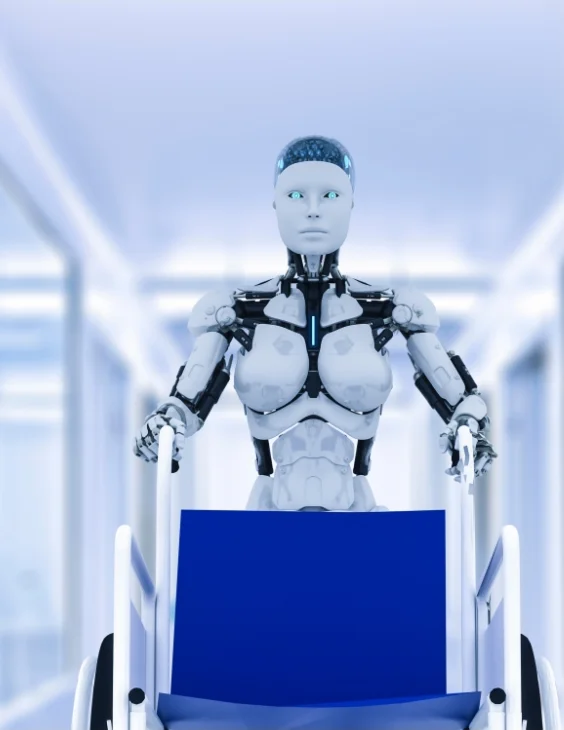Long wait times and inefficient workflows have long been pain points for both patients and providers in healthcare systems around the world. However, new advances in artificial intelligence (AI) are now being applied to optimize healthcare operations and reduce delays in care delivery. Implementing AI-powered tools to enhance workflow and capacity planning holds the promise of faster access to care, improved patient outcomes, and higher staff productivity.
The Challenges of Healthcare Workflow
Complex schedules, variability in patient demand, intricate clinical workflows, and resource constraints all contribute to inefficient operations in healthcare facilities. Patients routinely experience long wait times for appointments, test results, operating room availability, and discharge. At the same time, healthcare workers get bogged down with burdensome administrative tasks and frequent interruptions impacting their productivity.
Backlogs throughout the system lead to delayed diagnosis and treatment for many conditions, which can negatively impact clinical outcomes. Providers are also frustrated by wasted time and obstacles that prevent them from focusing on patient care. There is a pressing need for new solutions to streamline healthcare workflow. AI is emerging as a tool to optimize everything from medical records to operating room turnover.
Optimizing Patient Schedules
One major use of AI-enabled workflow improvement is optimizing patient appointment scheduling. Machine learning algorithms can analyze appointment data, patient profiles, resource availability, and other factors to automatically schedule new appointments in the most efficient sequence. This can drastically cut down wait times for securing appointments.
Some healthcare organizations have reduced appointment wait times from weeks to just a few days using intelligent scheduling systems. The algorithms continually learn from data to improve schedule efficiency over time. If a patient cancels an appointment, for example, the system can immediately fill the open slot with another patient based on various priority factors. This maximizes utilization of physicians, labs, and other resources.
Enhancing Resource Coordination
Care coordination is another aspect of healthcare operations where AI shows promise. Arrangeing timely consultations with specialists, transferring patients between units, scheduling operating rooms, assigning bed space, and discharge planning all involve aligning disparate resources. Doing this smoothly takes experience and constant communication between departments.
AI coordination platforms can digest data from electronic records, admission systems, and personnel schedules to identify optimal timing for resource-intensive activities like surgeries and discharges. The AI becomes smarter at avoiding bottlenecks or conflicts as more data is gathered. This makes care transitions smoother.
For example, a "smart hospital" system could track when a patient is ready for discharge, notify environmental services to clean the room, alert transport to move the patient, and give admission staff notice to prep paperwork for the next patient - all automatically without a nurse needing to make multiple calls. This streamlines discharges.
Automating Administrative Processes
Healthcare workers spend significant time on administrative and documentation responsibilities like billing codes, lab requisitions, and chart audits. AI-based robotic process automation can take over high-volume repetitive clerical tasks to free up staff time for critical activities.
Natural language processing algorithms can extract key data from patient records and input relevant codes or values into forms and databases. Bots can also retrieve patient-specific clinical protocols or research to assist physicians with decision-making. By reducing time spent on desk work, providers can increase time with patients.
Aiding Clinical Decision Making
At the care delivery level, AI decision support tools can optimize everything from length of hospital stays to medication dosing. AI models can synthesize details in a patient’s record along with population data to predict optimal interventions and support personalized treatment.
If an AI tool identifies a patient is at risk for sepsis, it can prompt early intervention and monitor for progression. The AI could even order a rapid response based on vitals and labs meeting evidence-based criteria. This moves appropriate actions forward without delay.
Continually Learning and Adapting
A key advantage of AI systems is their ability to continually analyze new data from healthcare workflows and refine algorithms to improve efficiency. Unlike static workflow policies, AI can adapt to changing conditions and patient demand. As providers and staff give feedback on what works, the system updates to make better recommendations over time.
Imagine an AI that manages operating room turnover by adjusting staff assignments and scheduling based on real-time completion of prior surgeries and equipment sterilization. By constantly optimizing, it consistently improves OR efficiency and accuracy of start times. AI has the potential to revolutionize hospital operations.
Overcoming Barriers to Implementation
While adoption is accelerating, barriers exist to widespread implementation of AI tools. The technology requires significant upfront investment and integration with legacy IT systems. Many clinicians also need training to accept and trust AI-generated recommendations that may contradict standard workflow. Privacy issues around data sharing also come into play.
However, healthcare systems that can overcome these hurdles stand to realize substantial benefits from enhanced efficiency, reduced costs, and improved patient care. AI workflow tools mark the beginning of a fundamental shift toward data-driven, optimized operations in healthcare. Wait times, clinician frustration, and resource bottlenecks could be significantly reduced through collaborative human-AI systems - delivering care when and where patients need it.





.webp)


%20(1).png)
.png)
%20(1).png)


%20(1).png)




%201.png)
